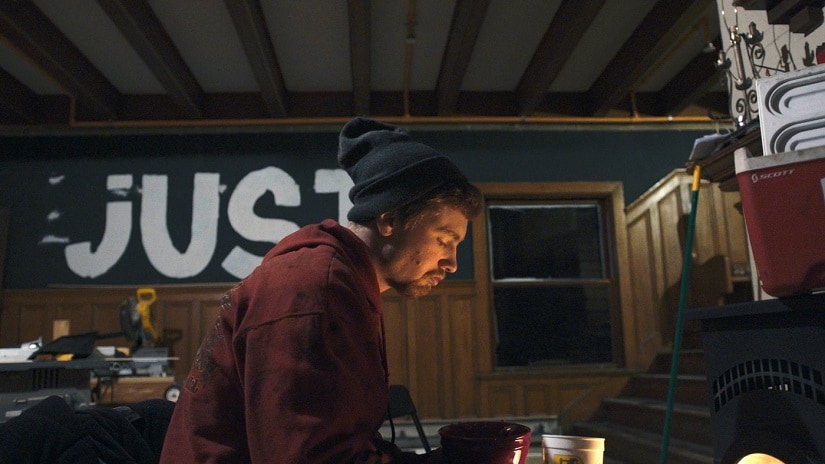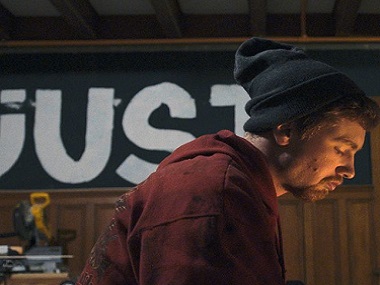A few days ago, I received an ominous phone call. A friend had over dosed on drugs and he was found in his apartment in a pile of needles. At the funeral, his distraught parents asked me what went wrong – I could not fathom the courage to give them the real answer – that he felt neglected by society and dived into addiction just to cope. As we watched the burning pyre, the mother blamed me for not being a good enough friend – if I had tried harder to make him feel needed in this world, he would probably still have been alive. [caption id=“attachment_4654351” align=“alignnone” width=“825”]  A still from Recovery Boys. Netflix[/caption] It is still not clear to me whether the mother’s reaction was a coping mechanism to deal with the trauma of losing her son – after all lashing out is ultimately the refuge of the defeated – or she actually meant what she said. Regardless of the truth, a creeping sense of guilt overrode my thought process, planting itself in my brain, flashing images that I did not want to deal with, and emotions I couldn’t process and understand clearly. It was not until I watched Recovery Boys that I understood why this was happening. Recovery Boys, directed by Elaine McMillion Sheldon, is a somber, often devastating chronicle of a group of young men in a rehab facility trying to reach the metaphorical light at the end of the tunnel. The four men, Jeff, Rush, Adam and Ryan, all victims of the burgeoning opioid crisis in America are seen tending to farm animals at the rehab, trying to understand and support each other and also dealing with how society looks at them. As the cameras linger on them, we learn, in intimate detail, that once society brands you as a drug addict, there is no going back, it stays with you as a permanent mark of shame. What sets this film apart from many other films on addiction is the way it entwines the personal stories of the group members with with the facility itself. The rehab in question is called Jacob’s Ladder which – if you have seen the movie of the same name - literally means the connection between heaven and Earth, and it was founded by the father of an addict. Director McMillion understands that the stories of the group members are tangled up in the story of the facility in itself; this becomes clear in one particularly devastating scene where a mother must deal with watching her son pump himself up with drugs at her own home because the treatment has not worked and he has relapsed. As we watch these young men struggle, we are left to wonder whether they are going to survive at all or they will also end up in a funeral pyre. These men recognise themselves as outcasts. They are aware that they are superfluous to the big city life of ordinariness, too numb to reach out to people yet too unsettled mentally to function normally. There are no definite answers within the film and the persistent ambiguity on the way forward is unsettling. There is nothing certain about recovery because everyone is just one thought away from doing something they would regret. There is beauty in the array of the many broken faces in the film and the doubts the film raises over who or what is responsible for this situation is not just America specific but relevant to any country in the world. The worrisome aspect is once former addicts finish their treatment at a rehab, they emerge with a sense of flatness. They do not really want to get back to a basic, static and banal world. Sadly, at a time when ‘controlled death’ is increasingly becoming a topic of discussion as a legitimate option for individuals who do not see any hope for themselves, no one seems to be discussing controlled life and how anyone could achieve that. As a companion piece to the other addiction based Netflix film Take Your Pills, Recovery Boys serves as a warning bell of signs of young addicts’ insecurity, yearning, defensiveness and inward-turning anger at those who abandoned them. We do ourselves no favors by denying that losing oneself in a haze is the only option in so many lives around us. And in a country like India, where subjects like depression and addiction are treated as taboos and should never be uttered, it is important to watch these films and learn that the person closest to you may seem as happy as the summer light but is, in fact, dealing inwardly with waves of futility and darkness crashing violently against and drowning out said light. Recovery Boys is streaming on Netflix India.
What sets Recovery Boys apart from many other films on addiction is the way it entwines the personal stories of addicts with with the facility itself.
Advertisement
End of Article
Written by Mihir Fadnavis
Mihir Fadnavis is a film critic and certified movie geek who has consumed more movies than meals. He blogs at http://mihirfadnavis.blogspot.in. see more


)
)
)
)
)
)
)
)
)



